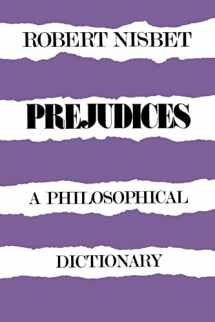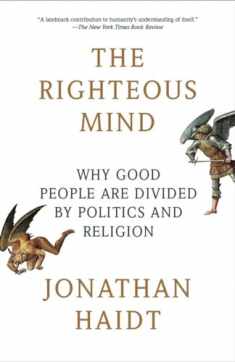
Prejudices: A Philosophical Dictionary
Book details
Summary
Description
A great moralist and social thinker illuminates the most vexing issues of our time―war, old age, racism, abortion, boredom, crime and punishment, sociobiology, and seventy odd others―in a dazzling book that is by turns hilarious and somber but always vigorous and stimulating. Upon each subject Robert Nisbet offers piercing and often unexpected insights.
Joining the colorful company of Montaigne, Voltaire, Burke, and Mencken, Nisbet writes for his own age and with his own prejudices. He ranges from the historical to the contemporary, from great men to lesser ones, from pieties and wisdoms to fads and effronteries. The work, in other words, is neither philosophy nor a dictionary (except that the subject matter is arranged in alphabetical order), but the distillation of Nisbet’s wisdom, learning, and profound moral conviction. He argues for liberty over equality, for authority against permissiveness, for religion but also for science, for the individual and his rights but against individualism and entitlements. The center of his thinking is the fervent wish for a community linked by history, religion, and ritual, in which children are raised by families rather than by the state, but in which blind custom and belief are questioned and creativity emerges. Determinism of any kind he finds untrue to human nature and history. Man is free to improve himself or destroy himself.


We would LOVE it if you could help us and other readers by reviewing the book
Book review




